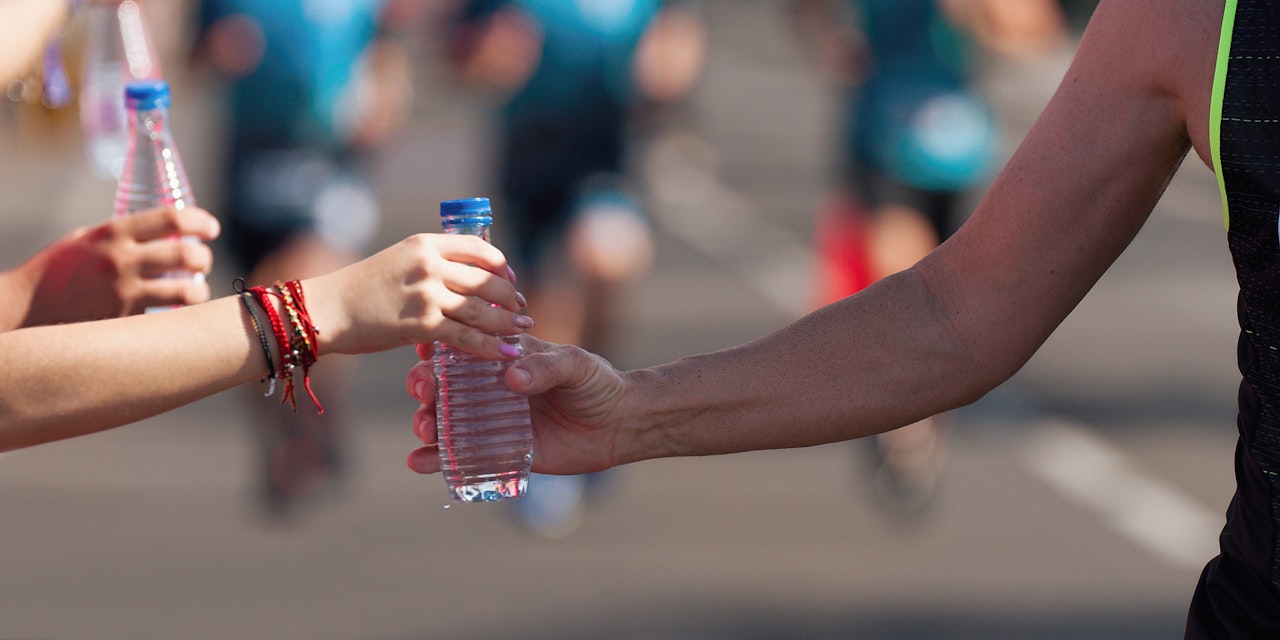
Proper nutrition is vital for fueling your performance before, during and after a run. However, most information focuses on pre-run and post-run meals. While these meals are essential to ensuring that you have the fuel needed for your best performance and recovery, it is also important to take into account what to eat if you need to refuel during a run. Not all runs require refueling; here we will take a look at when you should refuel, why you should refuel, and what you should refuel with.
Why is it important to refuel during a run?
Runners require fuel, primarily in the form of carbohydrates, to give them energy and keep them going. A diet high in carbohydrates is essential for endurance athletes, such as runners, to sustain their glucose levels, to ensure muscle and liver glycogen stores are plentiful, and to restore lost glycogen during and after exercise(1). Without the proper amount of carbohydrates and stored fuel, endurance athletes can become fatigued more quickly, having an overall negative impact on their performance.
Replenishing fluids is also a necessity in ensuring optimal performance. As you run, water is lost through sweat. If this fluid is not replaced, the runner is at risk for dehydration and electrolyte imbalances. Dehydration may also cause muscle cramps and fatigue (2), which may further hinder performance.
When to refuel during a run
Whether you are training for or competing in a race, knowing when to refuel is important to ensure your best performance. However not all runs or races require you to refuel during the activity; nutrition guidelines for refueling are especially important for endurance events lasting longer than an hour (2). This is because glycogen stores can be exhausted after one to two hours of intense activity (1). To keep a steady supply of energy, it is recommended that endurance athletes consume approximately 30 g to 60 g of carbohydrate per hour of exercise (1). As for fluid intake, runners should aim to drink one-half to two cups of fluid every 15 minutes to prevent dehydration (1).
What should you refuel with?
To attain peak performance and prevent fatigue during a run, the primary nutrition goals focus on maintaining blood glucose levels through the intake of carbohydrates and replacing lost fluids(1).
It is also suggested that intake of carbohydrates during exercise is especially important for those who do not intake the proper amount of carbohydrates or who skip meals pre-exercise meals (2). The type of carbohydrate consumed should be primarily simple carbohydrates, because they are digested quickly and send immediate bursts of glucose (energy) into the bloodstream (3). These simple carbohydrates can be in the form of a carb-rich snack such as a banana, a sports drink or a sports gel. It is important that the food chosen is high in carbohydrate but low in fat, protein and fiber so that the food is easily digestible and does not cause stomach upset.
Dehydration can also decrease exercise performance, therefore adequate fluid intake before, during, and after exercise is important for health and optimal performance. During your run, you sweat which causes you to lose water. The intent of drinking during exercise is to prevent you from losing too much fluid through your sweat, therefore potentially leading to dehydration. Replenishing fluid varies by individual and is dependent upon the amount the athlete sweats, the length and intensity of exercise, and how often the athlete can drink (2).
5 tips to keep in mind when refueling during your run
Now that you know the basics, here are some things to keep in mind as you refuel during your run:
- Introduce refueling during your training period. This is so that you can determine what works for you and what doesn’t to prevent any negative effects before, or worse- during- a competition.
- Stick to high glucose foods that you can tolerate well. Foods that are high in fat, protein and fiber can cause digestion to slow and can lead to stomach discomfort. Fast digesting carbs will give you the short bursts of energy you need without upsetting your stomach.
- Take small sips of fluid throughout your run, if you can. To remain hydrated without overdoing it, try to take small sips of fluid rather than large gulps that may slosh around in your stomach while you run. (However, maintaining hydration is what is most important so make sure to do whatever works best for your body!)
- If you are considering a sports drink, choose one with a 6% to 8% carbohydrate concentration (about 50 kcal per cup) (2). These can enhance fluid intake and provide needed carbohydrate during endurance performance.
- Learn what works best for you. As every athlete is different, there is no one plan that fits all. Learning what you can tolerate and what works during those extended runs will help you perform at your best.
As a runner, your main goal is to perform as best as you can. Nutrition is an important part of performance, especially for endurance runners. Knowing when and how to refuel during a long run can prevent fatigue, cramping and dehydration which all have an overall negative impact on performance. Not sure you are getting the proper nutrition for your endurance needs? Apps such as Lifesum can help you track your intake and nutrition habits to ensure you are supporting your athletic lifestyle. What are some ways you like to refuel during your run?
3 references (hide)
All of the content and media on Lifesum is created and published for information purposes only. It is not intended to be used as a substitute for medical advice or treatment. Users should always consult with a doctor or other health care professional for medical advice. If you have or think you are at risk of developing an eating disorder, do not use the Lifesum app and seek immediate medical help.